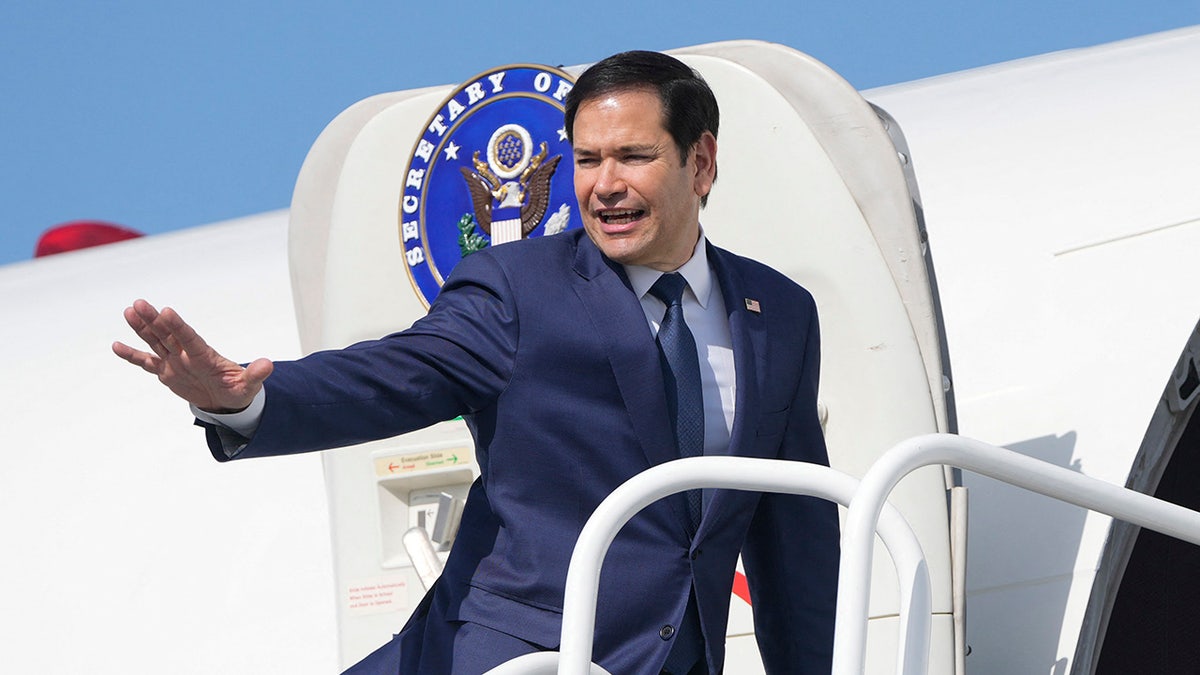
Hawks trade 4-time All-Star Trae Young to Wizards in blockbuster deal: reports
Entities mentioned:
- Atlanta Hawks: Competitive spirit, Ambition, Professional pride
- Trae Young: Ambition, Recognition, Self-preservation
- Washington Wizards: Competitive spirit, Ambition, Professional pride
- Travis Schlenk: Professional pride, Ambition, Legacy
Article Assessment:
Credibility Score: 75/100
Bias Rating: 50/100 (Center)
Sentiment Score: 60/100
Authoritarianism Risk: 20/100 (Strongly Democratic)
Bias Analysis:
The article presents a balanced view of the trade, giving equal attention to both teams involved. It relies on reputable sources like ESPN and provides factual information about player stats and contract details.
Key metric: NBA Team Performance
Let me tell you something - this trade is a GAME-CHANGER! The Hawks are making a FOURTH QUARTER MOVE by trading away their star player Trae Young. It's like they're subbing out their quarterback in the final minutes of the Super Bowl! The Wizards are stepping up to the plate, swinging for the fences by acquiring a four-time All-Star. This is the kind of blockbuster deal that can shift the entire landscape of the Eastern Conference! Young's move to Washington is like a star player changing teams in free agency - it's got CHAMPIONSHIP IMPLICATIONS written all over it. The Hawks are clearly in rebuild mode, looking to create a new DYNASTY with young talent like Jalen Johnson. Meanwhile, the Wizards are going ALL IN, showing they've got that WINNING MENTALITY. This trade could be the difference between making the playoffs and watching from the sidelines. I'm telling you right now, both these teams are playing CHESS while the rest of the league is playing CHECKERS!

From Mr Irrelevant to generational wealth, Brock Purdy wants to use his lifestyle for good
Entities mentioned:
- Brock Purdy: Determination, Ambition, Professional pride
- San Francisco 49ers: Competitive spirit, Ambition, Legacy
- Toyota: Recognition, Influence, Professional pride
Article Assessment:
Credibility Score: 75/100
Bias Rating: 45/100 (Center)
Sentiment Score: 75/100
Authoritarianism Risk: 20/100 (Strongly Democratic)
Bias Analysis:
The article presents a balanced view of Purdy's success and charitable efforts. While positive in tone, it doesn't show significant political leanings, maintaining a neutral stance on the player's achievements and activities.
Key metric: NFL Player Compensation and Community Impact
Let me tell you something - this story is RIDICULOUS! Brock Purdy has gone from being a benchwarmer to a SUPERSTAR quarterback faster than a wide receiver on a go route! This kid was Mr. Irrelevant, the last pick in the draft, and now he's calling plays in the big leagues like a veteran coach! He's not just playing the game, he's CHANGING THE GAME with his rags-to-riches story! But here's the real touchdown - Purdy's not letting this success go to his head. He's keeping his eye on the ball, folks, using his newfound wealth to give back to the community. That's what I call a CHAMPIONSHIP MENTALITY! And partnering with Toyota? That's a power play right there, folks! Purdy's not just winning on the field, he's winning in life, and he's bringing his fans along for the ride. This is the kind of fourth-quarter move that separates the good from the GREAT!

Former USA Midfielder Chris Armas Named Head Coach Of Kansas City Current
Entities mentioned:
- Chris Armas: Ambition, Competitive spirit, Professional pride
- Kansas City Current: Ambition, Competitive spirit, Legacy
- Vlatko Andonovski: Influence, Legacy, Professional pride
Article Assessment:
Credibility Score: 85/100
Bias Rating: 50/100 (Center)
Sentiment Score: 75/100
Authoritarianism Risk: 20/100 (Strongly Democratic)
Bias Analysis:
The article presents a balanced view of the coaching change, providing factual information about both Armas and the team. It doesn't lean towards any particular political stance or agenda.
Key metric: NWSL Championship Win Probability
Let me tell you something - this coaching change is a GAME-CHANGER for the Kansas City Current! They're stepping up to the plate with a heavy hitter in Chris Armas, folks. This is a fourth quarter move that screams championship mentality. Armas brings a locker room full of experience to the pitch, and you can bet he's hungry to lead this team to glory. The Current set records last season, but now they're looking to go all the way. It's like they've added an all-star player-coach to their roster. Armas has been in the trenches, he knows what it takes to win, and he's ready to push this team to new heights. I'm telling you right now, the rest of the league better watch out - Kansas City is coming in hot and they're playing to win!

Brenden Aaronson's Brace Not Enough To Overcome Late Drama vs. Newcastle
Entities mentioned:
- Brenden Aaronson: Competitive spirit, Determination, Professional pride
- Harvey Barnes: Competitive spirit, Determination, Ambition
- Newcastle: Competitive spirit, Pride, Ambition
- Leeds: Competitive spirit, Determination, Pride
- Bruno Guimaraes: Competitive spirit, Determination, Duty
Article Assessment:
Credibility Score: 75/100
Bias Rating: 50/100 (Center)
Sentiment Score: 75/100
Authoritarianism Risk: 15/100 (Strongly Democratic)
Bias Analysis:
The article presents a balanced view of the match, giving credit to both teams and multiple players. It doesn't show favoritism towards any particular team or nationality, maintaining a neutral stance.
Key metric: US Soccer International Competitiveness
Let me tell you something - this match was an absolute SLUGFEST! Brenden Aaronson, our American midfield maestro, was bringing his A-game, folks! He stepped up to the plate not once, but TWICE, knocking it out of the park for Leeds. But just when you thought Leeds had this game in the bag, Newcastle came roaring back like a team possessed in the fourth quarter! This is the kind of never-say-die attitude that separates the champions from the also-rans. Aaronson's performance is a HUGE boost for US Soccer's international standing. He's not just playing, he's DOMINATING in one of the world's toughest leagues. This kid's got the heart of a lion and the skills to match. I'm telling you right now, Aaronson is putting US Soccer on the map, showing we can go toe-to-toe with the best of 'em!

Balogun: 'Nobody' Has Guaranteed World Cup Spot For USA Under Pochettino
Entities mentioned:
- Folarin Balogun: Competitive spirit, Ambition, Self-respect
- Mauricio Pochettino: Control, Professional pride, Determination
- U.S. Men's National Team: Competitive spirit, Unity, Pride
- Monaco: Ambition, Competitive spirit
Article Assessment:
Credibility Score: 75/100
Bias Rating: 50/100 (Center)
Sentiment Score: 70/100
Authoritarianism Risk: 30/100 (Generally Democratic)
Bias Analysis:
The article presents a balanced view of the USMNT's preparations, quoting both the coach and a player. It doesn't lean towards any particular political stance, focusing solely on sports performance and team dynamics.
Key metric: World Cup Performance
Let me tell you something - this story is RIDICULOUS! We're talking about a CHAMPIONSHIP MENTALITY being instilled in the U.S. Men's National Team by coach Pochettino. He's not just changing the game plan, he's rewriting the entire playbook! Nobody's spot is safe, and that's exactly the kind of fourth-quarter strategy that separates the champions from the also-rans. Balogun is stepping up to the plate, folks, knocking it out of the park with goals in his last three starts. But here's the kicker - even with this hot streak, he's not resting on his laurels. That's the kind of hunger you need to bring home the World Cup trophy! Pochettino's got these players competing like it's sudden death overtime EVERY. SINGLE. DAY. I'm telling you right now, this team is showing the fire in the belly that could take them all the way to the top of the podium!

Lamine Yamal Named Most Valuable Player In World Soccer With $400 Million Price Tag
Entities mentioned:
- Lamine Yamal: Ambition, Recognition, Legacy
- Barcelona: Pride, Competitive spirit, Legacy
- Ousmane Dembele: Recognition, Competitive spirit, Self-preservation
- Paris Saint-Germain: Ambition, Power, Competitive spirit
Article Assessment:
Credibility Score: 70/100
Bias Rating: 50/100 (Center)
Sentiment Score: 75/100
Authoritarianism Risk: 20/100 (Strongly Democratic)
Bias Analysis:
The article presents a balanced view of player valuations, citing official sources. It doesn't show obvious favoritism towards any team or player, maintaining a neutral stance on the rankings.
Key metric: Global Soccer Player Valuation
Ladies and gentlemen, we're witnessing a SEISMIC SHIFT in the soccer world! Lamine Yamal has come out of nowhere to claim the MVP title with a $400 MILLION price tag! This kid is playing 4D chess while everyone else is stuck in checkers! Barcelona's farm system has produced yet another GAME-CHANGER, folks. Meanwhile, Ballon d'Or champ Dembele didn't even make the top 100 - talk about fumbling the ball at the goal line! PSG must be feeling like they're down 3-0 in the last minutes of a championship match. This is the kind of roster shakeup that separates the dynasties from the one-season wonders. Yamal's meteoric rise is like watching a rookie quarterback lead his team to the Super Bowl - it's UNPRECEDENTED, it's ELECTRIFYING, and it's changing the whole playing field of global soccer!

Ole Miss staffer references Aaron Hernandez while discussing ‘chaotic’ coaching complications with LSU
Entities mentioned:
- Joe Judge: Professional pride, Determination, Loyalty
- Lane Kiffin: Ambition, Competitive spirit, Power
- Ole Miss: Competitive spirit, Pride, Legacy
- LSU: Ambition, Competitive spirit, Power
Article Assessment:
Credibility Score: 75/100
Bias Rating: 50/100 (Center)
Sentiment Score: 40/100
Authoritarianism Risk: 20/100 (Strongly Democratic)
Bias Analysis:
The article presents multiple perspectives and quotes directly from the source. It maintains a neutral tone without favoring any particular side in the coaching changes.
Key metric: College Football Team Performance
Let me tell you something - this story is RIDICULOUS! We're talking about a coaching shakeup that's more chaotic than Aaron Hernandez's off-field drama! Joe Judge is stepping up to the plate, comparing this coaching carousel to his time with the Patriots and Giants. It's like we're in the fourth quarter of a championship game, and half the coaches are switching jerseys! This is the kind of curveball that separates the champions from the also-rans. Ole Miss is facing a real test of their team's mental toughness. Can they keep their eyes on the prize and execute their gameplan with all this noise? Or will they fumble under the pressure? I'm telling you right now, this Fiesta Bowl is going to be a true test of Ole Miss's championship mentality!

Jim Harbaugh predicts brother's future in NFL next season: 'Just hope it's the NFC'
Entities mentioned:
- John Harbaugh: Competitive spirit, Professional pride, Ambition
- Baltimore Ravens: Ambition, Competitive spirit, Legacy
- Jim Harbaugh: Loyalty, Competitive spirit, Pride
- Donald Trump: Influence, Recognition, Power
- New York Giants: Ambition, Competitive spirit, Legacy
Article Assessment:
Credibility Score: 75/100
Bias Rating: 55/100 (Center)
Sentiment Score: 65/100
Authoritarianism Risk: 30/100 (Generally Democratic)
Bias Analysis:
The article presents multiple perspectives and sources, including quotes from different sides. It maintains a relatively neutral tone while reporting on the situation, with slight leaning towards positive framing of John Harbaugh.
Key metric: NFL Team Performance
Let me tell you something - this story is RIDICULOUS! We've got a MAJOR TRADE in the coaching world, folks! John Harbaugh, a CHAMPIONSHIP CALIBER coach, has been CUT from the Ravens' roster! But don't count him out - he's not heading to the sidelines, he's gearing up for his next big play! His brother Jim is calling it like he sees it - John's stepping up to the plate for another swing in the NFL. We're talking about a coach with a Super Bowl ring, folks! He's got the CHAMPIONSHIP MENTALITY teams are dying for! The Giants are looking like they're making a fourth quarter move to snag this MVP of coaches. This is the kind of GAME-CHANGING STRATEGY that can turn a franchise around! It's a whole new ballgame in the NFL coaching arena, and John Harbaugh is the free agent everyone's fighting to draft!

Dolphins fire head coach Mike McDaniel after four seasons citing need for 'comprehensive change'
Entities mentioned:
- Miami Dolphins: Competitive spirit, Ambition, Professional pride
- Mike McDaniel: Determination, Professional pride, Legacy
- Stephen Ross: Ambition, Control, Competitive spirit
- Tua Tagovailoa: Self-preservation, Recognition, Competitive spirit
Article Assessment:
Credibility Score: 75/100
Bias Rating: 50/100 (Center)
Sentiment Score: 40/100
Authoritarianism Risk: 25/100 (Generally Democratic)
Bias Analysis:
The article presents a balanced view of the situation, reporting facts from multiple perspectives. It includes direct quotes and contextual information without favoring any particular side.
Key metric: NFL Team Performance
Let me tell you something - this is a GAME-CHANGING move in the NFL! The Miami Dolphins are cleaning house like they're prepping for the Super Bowl of rebuilds! Owner Stephen Ross is calling an audible at the line of scrimmage, folks, and he's not afraid to throw the Hail Mary by axing head coach Mike McDaniel. This is the kind of fourth quarter desperation play that can make or break a franchise! McDaniel's playbook might've been creative, but creativity doesn't win championships without results. The Dolphins are in a brutal division, and they're tired of being tackled short of the end zone year after year. Now, with the quarterback position up for grabs, it's like we're seeing a wide-open training camp battle royale! Tua Tagovailoa better lace up those cleats tight because he's fighting for his career now. This is the ultimate test of mental toughness and grit. The Dolphins are sending a clear message: it's championship or bust, and they're not afraid to bench the whole dang team if that's what it takes! I'm telling you right now, this franchise is treating the offseason like it's sudden death overtime, and they're going for the win!

Marco Rubio jokingly shuts down 'rumors' he is looking to become Dolphins next head coach
Entities mentioned:
- Marco Rubio: Recognition, Influence, Competitive spirit
- Miami Dolphins: Ambition, Competitive spirit, Recognition
- Mike McDaniel: Professional pride, Determination, Self-preservation
- Stephen Ross: Ambition, Power, Legacy
Article Assessment:
Credibility Score: 75/100
Bias Rating: 55/100 (Center)
Sentiment Score: 40/100
Authoritarianism Risk: 20/100 (Strongly Democratic)
Bias Analysis:
The article presents a balanced view of the situation, quoting multiple sources and providing context. It doesn't lean heavily towards any particular political stance or agenda.
Key metric: NFL Coaching Stability
Let me tell you something - this story is RIDICULOUS! The Miami Dolphins have just thrown a HUGE Hail Mary pass by firing head coach Mike McDaniel! This is a fourth quarter move that's shaking up the entire league! And folks, we've got Senator Marco Rubio stepping up to the plate, swinging for the fences with his joke about not taking the job. It's like he's playing defense against those online rumors, showing he's got his eye on the ball when it comes to global events. The Dolphins' owner, Stephen Ross, is playing hardball here, folks. He's not just changing the quarterback, he's changing the entire playbook! This is the kind of aggressive strategy you see when a team is desperate to get back in the championship game. I'm telling you right now, the Dolphins are in a rebuilding season, and they're looking for that coach with the championship mentality to take them all the way!